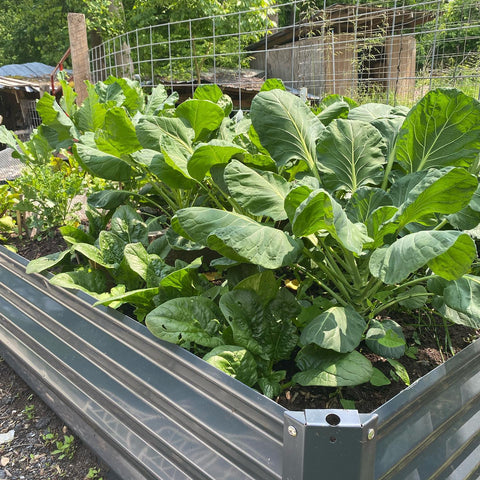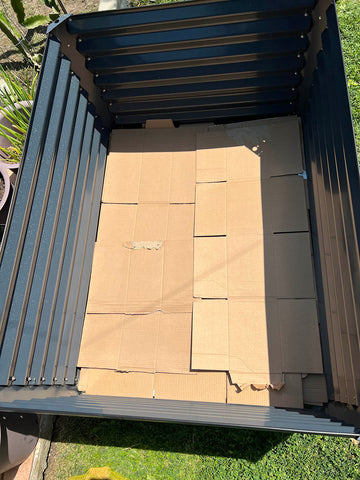Gardening with children is so much fun! Some of my fondest childhood memories include gardening with my grandparents. Tasting fresh chives and carrots really gave me inspiration for gardening today. Most children get something out of gardening, and tasting fresh produce is a great way to get them involved in the process.The following content also has some reference value for raised garden beds.
You probably already know the benefits of spending some time in the yard, away from the couch, including benefits for the immune system and mental space. But how do we help our children get into gardening - an activity that can last into adulthood and benefit them throughout their lives? There are many ways to do this, and we've covered some of them here.
What was their inspiration?
This is one of the easiest and most successful ways to get children into the garden, even at a very young age. First ask them what they want to grow. Giving them the choice to grow plants they like will make them feel like they have a say in their gardening experience. If they like blueberry pie, teach them how to grow blueberries. If they like French fries, teach them how to grow potatoes.
Or try growing a pizza garden with the kids, using cherry tomatoes and herbs like basil, oregano, sage and garlic. Coming up with the idea of a food-centric garden will not only pique their interest, with delicious snacks everywhere, but will also give them a better understanding of the big picture of gardening, especially when it comes to companion planting.
Give them the tools they need to grow
An important factor in making your child responsible for plants is determining the size of the space dedicated to that purpose. The type of space is also important. The outdoor space or outdoor loft bed can be just as educational as the indoor space. We have a great article on indoor gardening for beginners that translates well into gardening for children. You can give them their own window space and their own POTS to grow the garden of their choice.
Maybe you live in a place with a garden, or an apartment or flat, and the largest room is a balcony. Smaller Spaces are not a barrier, and showing your children how to maximize a container garden within these parameters is another great lesson for them.
Or, maybe you want to start gardening with kids and let your kids pick out a plant at a local nursery and see how it grows instead of a garden bed or balcony garden. You can even set up a kids' garden in your backyard that your kids and their friends can enjoy.
Beneficial and fun gardening activities
There are many ways to make gardening fun, and gardening with kids is no exception! Here are some fun ideas and some good tips for gardening with kids to get your kids interested in cultivating their own garden space.
From seed to plant
One way for children to learn to garden is to help them plant seeds. Let them see what happens a few weeks after the seeds germinate. A basic method is to put Lima beans in a wet paper towel and put it in a plastic bag. Once it starts growing, you can move it to a starter pot and then your garden.
Turn it into a game
If there's one thing kids love, it's games. It is a good idea to have a friendly competition between you and your children or siblings. Adding games to gardening projects can take them from fun to really fun. Choose a plant that is easy to measure, such as peppers, tomatoes, or other vegetables. Give them the supplies they need to help them produce their biggest vegetables.
Offer prizes to the winners. It could be as simple as going to get ice cream or their favorite food. You can also motivate garden maintenance tasks in this way. Whoever has the least weeds in his garden wins a prize.
Garden planning and scheduling
Routine is important to a lot of people, and kids are no exception. If they know that their morning routine involves going outside to water the plants or even just checking on them, it will become a normal part of their day. They may even look forward to waking up in the morning and spending some time in the garden.
Make sure that when you form a routine with your child, you show excitement and enthusiasm. Even the most ardent gardener can find certain tasks a little annoying. Showing them how a habit can pay off is a great opportunity for them to see progress in their continued effort.









